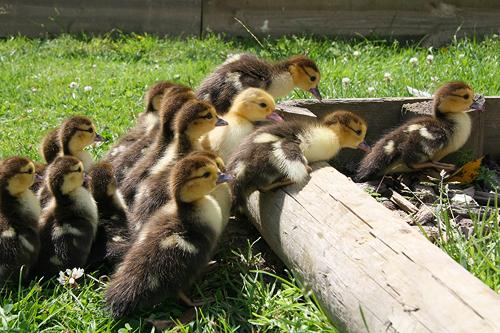 Lisa Ard leads a dream life in
Portland, Oregon, with her husband and two children. Her first book, Fright Flight, Dream Seekers Book One
received the FlamingNet Top Choice award.
Lisa Ard leads a dream life in
Portland, Oregon, with her husband and two children. Her first book, Fright Flight, Dream Seekers Book One
received the FlamingNet Top Choice award.
In addition to writing, she loves
visiting schools and hearing from readers.
For school visits, book information, contests, games, puzzles, or just to chat, you may contact Lisa via her website: www.authorlisaard.com or email: lisaard2002@yahoo.com.
For school visits, book information, contests, games, puzzles, or just to chat, you may contact Lisa via her website: www.authorlisaard.com or email: lisaard2002@yahoo.com.
Follow Lisa on her blog: Adventures in Writing & Publishing
 Q: Fright Flight
Q: Fright FlightA: During a writing class I was brainstorming ideas for a story. My own kids read Magic Tree House, Geronimo Stilton, Secrets of Droon and many other early reader series. I thought about the trigger by which kids in these series have adventures -- a magical tree house, a secret door..., and came up with the idea of dreams as a vehicle to fantastical adventure.
 Q: Dream
Seekers is a series. Care to give us any hints about what kind of
further adventures are in store for Patrick and his family?
Q: Dream
Seekers is a series. Care to give us any hints about what kind of
further adventures are in store for Patrick and his family?A: Perhaps by the time this interview posts, I'll have released Dream Team, Dream Seekers Book Two. In Dream Team, Patrick plays a magical baseball game with some of the greatest players of all time, in a rather unusual setting. I'm working on book three, which delves into more of the history of dream seeking within Patrick's family. I already have some rough idea of the following book; a friend and reader in Australia suggested one about lava.
(Note from Heidi: Book Two is out now! Click link above to purchase from Amazon, or see Lisa's blog to find out how you can get a free copy.)
Q: In addition to the second Dream Seekers
A: Saving Halloween is a spellbinding tale of a girl who finds the true meaning of friendship and family amongst characters who are not always what they seem. It's my tribute to Roald Dahl, who was a master writer of bad parents. Think Matilda, Charlie and the Chocolate Factory, James and the Giant Peach - most of the family figures are horrible! My main character Anne has some awful parents -- awful in a very modern way. There is also a lot of deception in this book - in how the characters appear, what they say, how they are named..., well, I can't say anymore or I'll give it away. Suffice it to say, I'm very excited to share this book with readers and hoping for a successful launch this September.
Q: For Dream Seekers, you published with a with a small press publisher. Saving Halloween will be self-published. What factors went into making that decision? What new skills have you had to develop?
A: Puddletown Publishing released my first book, Fright Flight, Dream Seekers Book One. They handled all the editing, ebook set up, illustrations, cover design, isbn, distribution, etc., which was great. Those were all things I was not prepared to do. But now, I feel a little more savvy and more importantly, very opinionated about this project. For Saving Halloween, I have a vision of what the illustrations should look like, how they will appear in the book, what the cover should convey. By self publishing I retain control of all of that. Plus I can bring it to market quickly, in time for the Halloween season.
Q: Can you share a little bit about your writing process?
A: I'd like to say I have a regular schedule, but I don't. I snatch hours here and there. However, I am motivated to submit every two weeks to my critique group. That's probably the number one instigator to write..., and that's a good thing.
Q: Do you also work outside the home or are you a stay-at-home mom? How do you balance your writing life with your other responsibilities?
A: I am a stay-at-home mom. I have quite a few volunteer commitments - the library, schools, and church. Now that my kids are 10 and almost 12, I have more school hours and some weekend hours to squeeze in my author tasks.
Q: You have done several school author visits. Any advice for someone considering doing the same?
A: Do it! Author visits are a blast. It's so much fun to connect with young readers. My advice would be to think about the content of the presentation and make sure that it's a value add for the class (and teacher) that you plan to visit. For example, last year I visited a lot of 4th graders, who were learning about editing. My workshop reinforced the teacher's efforts by discussing what is editing, why we do it and how we do it. It included an exercise so that my visit would be interactive. I talked to the teacher (thru e-mail) to confirm the language used around the topic (i.e. review, revise, edit).
Secondly, getting in to see classes is not as easy as I thought, even when the visits are offered for free (like mine are). Try to get personal introductions through friends. Remember that teachers are busy. They may not be able to squeeze in an author visit.
Q: What was your favorite childhood book?
Q: If you could have tea and cookies with any fictional character, who would you choose? What would be on the menu?
Thanks so much for being here with us today, Lisa, and good luck with your new releases!

